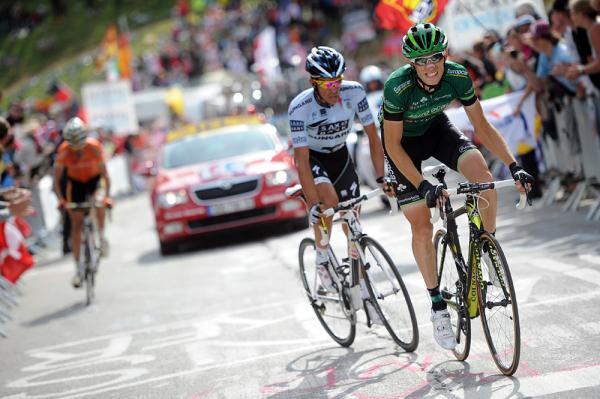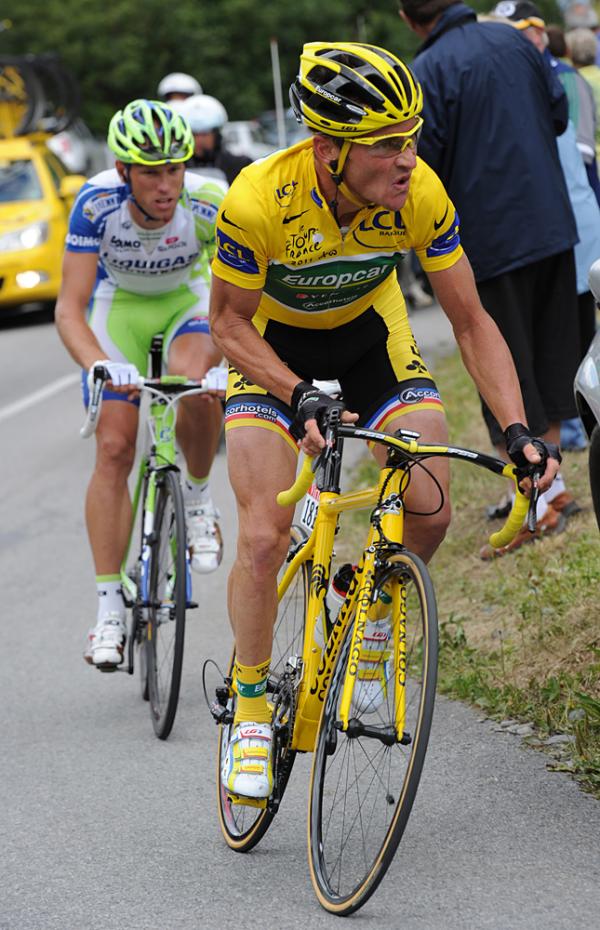2011 Tour de France the cleanest in recent years?
Anti-doping experts believe in credible figures


At the end of this year's Tour de France, many observers and anti-doping experts have drawn positive conclusions about the race's credibility. The statistics with regard to the decisive mountain stages indicate less explosive performances than in previous years, while riders have appeared to cross the finish line in more obvious states of fatigue than in the recent past.
Frédéric Grappe, doctor in biomechanics and long-time trainer of the FDJ team, was confident that this year's Tour has been one of the cleanest yet. "We have seen real cycling, the cycling we should always see," he told Le Journal du Dimanche.
"Cadel Evans' performances are the best way to measure this. He's been stable for the past eight years. He doesn't do any better than in previous years. It's the Schlecks and Contador who are slower. This Tour has been one of the slowest on the climbs since 2004," commented Grappe, who is usually known for his scepticism with regard to doping.
On stage 19 to l’Alpe d'Huez, where the individual times of each rider were officially clocked, Euskaltel-Euskadi's Samuel Sanchez recorded the best time with 41:45 minutes. But this is only the 24th best time in history. The day's winner Pierre Rolland (Europcar) climbed the mountain in 42:22 - yet in 2006, it took Fränk Schleck 40:46 minutes to get to the top en route to victory, while Floyd Landis and Andreas Klöden were clocked at 38:34 the same day.
Of course, one should always take into account the conditions of the day, the stage length prior to the climb and many other factors that can come into play. Still, the head doctor of the French cycling federation Armand Mégret, was convinced that this year's Tour has been cleaner just from watching the TV images.
"The ascent to l’Alpe d'Huez was very revealing: the worn-out face of Pierre Rolland, Alberto Contador who blows up, Thomas Voeckler paying for his efforts...," Mégret said.
Cofids manager Eric Boyer agreed with this view. "Yes, the Tour is cleaner every year. It's probably not perfect, but we are on the right path," he told Cyclingnews during the penultimate stage, the time trial in Grenoble.
Get The Leadout Newsletter
The latest race content, interviews, features, reviews and expert buying guides, direct to your inbox!
This year, the French anti-doping agency AFLD and the UCI have been working together to perform anti-doping controls in the mornings and evenings, and spoke of a "perfect collaboration" instead of publicly stating their mutual distrust. Still, a final verdict on the credibility of this Tour will have to wait until at least one week after the finish in Paris, when all the analysis of all the samples will be finalised. To date, only one rider has tested positive: Alexandr Kolobnev (Katusha).
Pharmacologist Michel Audran, another well-known anti-doping crusader, believes that some riders may still be cheating, but to a lesser extent. "In order not to get caught, the cheaters have to use microdoses that make the doping less effective. But all in all, I think the bunch is much healthier today," he commented.
Nevertheless, Audran warned of "an indetectable EPO produced in China at the time of the Beijing Olympics", and Grappe said he feared future possibilities of "manipulating the muscle fibers, the central nervous system and the tolerance threshold to pain."